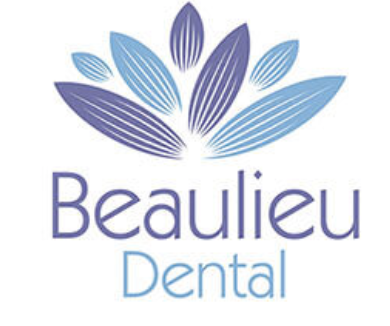November is Mouth Cancer Action Month, dedicated to raising awareness about the importance of good oral health and the warning signs of mouth cancer.
In the past year alone, 8,864 people in the UK were diagnosed with Mouth Cancer, yet awareness of the major signs and symptoms remains low.
In this blog, we detail the causes, symptoms, and risk factors associated with mouth cancer, so you can recognise and understand the early signs of mouth cancer. We also explore how you can take proactive steps to prevent mouth cancer, and why routine dental examinations are pivotal to safeguarding your oral health.
What is mouth cancer?
Mouth cancer, also known as oral cancer, is a type of cancer that can develop in various parts of the mouth, including the lips, tongue, gums, inner cheeks, roof and floor of the mouth, and throat. It often starts as a small, painless white or red sore, which can go unnoticed until it progresses.
What causes mouth cancer?
While the exact cause of most mouth cancers is not always clear, there are certain lifestyle factors that can put people at greater risk of developing mouth cancer.
Tobacco and alcohol use
The use of tobacco continues to be considered the leading cause of mouth cancer, with users 10 times more likely to develop mouth cancer compared to non-smokers.
As the harmful chemicals in tobacco can damage the cells in the mouth, this increases the likelihood of cancer, with more than 60% of mouth cancers linked to smoking. Drinking alcohol to excess can also elevate the risk of mouth cancer by four times.
HPV infection
Recent reports have linked mouth cancer to the human papillomavirus (HPV), with research suggesting that it could rival smoking and drinking as one of the main causes of mouth cancer within the next few years.
While traditionally associated with cervical cancer, the virus can cause changes in the mouth and throat, which can become cancerous in the future.
Sun exposure
Prolonged and unprotected exposure to ultraviolet radiation (UV) from the sun or sunbeds is the leading cause of skin cancer. While it is relatively common to develop on the head and neck, excessive sun exposure of lips can also lead to skin cancer.
Diet and nutrition
A diet deficient in fruits and vegetables can also increase the risk of mouth cancer, with diet linked to a third of all cancer cases. As such, a healthy, well-balanced diet with plenty of vitamins and minerals can play a large role in cancer prevention.
What are the symptoms of mouth cancer?
Early detection can be pivotal, which is why knowing and identifying any symptoms is crucial for safeguarding your oral health.
Mouth cancer symptoms can include:
- Persistent sores or ulcers lasting more than 3 weeks.
- Unexplained lumps or thickening in the mouth, neck, or throat.
- Red or white patches on the tongue or lining of the mouth.
- Persistent pain or discomfort in your mouth, jaw, or throat.
- Changes in speech, difficulty speaking, or a persistently hoarse voice.
- Difficulty swallowing, chewing, or moving the jaw or tongue.
- Unexplained earaches.
What is the difference between mouth ulcers and cancer?
Mouth cancer and mouth ulcers do have distinctive differences, however, new or persistent ulcers require regular checking.
Largely, mouth ulcers are often painful, but will clear up in about two weeks in comparison to mouth cancer which will be persistent and tends to be less painful.
What other risk factors are associated with mouth cancer?
Age
Age can also play a factor in developing various cancers, including mouth cancer. While it can occur at any age, the risk increases significantly after the age of 45.
Family history
A family history of cancer, including mouth cancer, is a noteworthy risk factor. If close relatives have been diagnosed with cancer, especially at a younger age, research suggests that there is a slight increase in the risk of developing mouth cancer.
Poor oral hygiene
Neglecting your oral hygiene can also be a significant risk factor for various oral health issues, including mouth cancer. Poor oral hygiene allows for the build-up of bacteria, which can lead to inflammation and potential complications with oral health.
How can you prevent mouth cancer?
While there is no direct way to prevent mouth cancer, taking proactive steps can significantly reduce your risk and improve your overall oral health. Measures such as quitting smoking, moderating alcohol intake, protecting yourself from sun exposure, and maintaining a nutritious, balanced diet are fundamental.
Practising good oral hygiene is also fundamental for preventing a range of oral health issues. Best practices include:
- Establishing a robust oral hygiene routine, including brushing your teeth at least twice a day, for two minutes.
- Flossing daily to remove any lingering food or plaque.
- Booking routine professional cleanings by a dentist.
What is the treatment for mouth cancer?
Mouth cancer treatment may depend on the location of the cancer, the type of cancer, and how far it has progressed. Dentists can play a crucial role in early detection, providing you with the next steps and guidance to help support you throughout treatment and beyond.
Collaborating closely with oncologists and other healthcare professionals, your dentist will form part of a multidisciplinary approach to ensure you get the best care, treatment, and support.
For further information, this Mouth Cancer Action Month, check out this helpful patient resource from the Mouth Cancer Foundation.
Take action with Beaulieu Dental
Whether you are in Chelmsford or live in the surrounding area, Beaulieu Dental is here to help you smile with confidence and maintain your oral health for the long term.
From deep cleaning to personalised guidance, our team of highly experienced dental hygienists are dedicated to keeping your smile bright and healthy. We offer direct access appointments with our dental hygienists, so you can book without first seeing one of our dentists.
If you are concerned about your oral health or feel that you could be at risk of developing mouth cancer, get in touch with a member of our friendly team. Our dentists are more than happy to answer questions and get you booked in for a routine dental examination.


